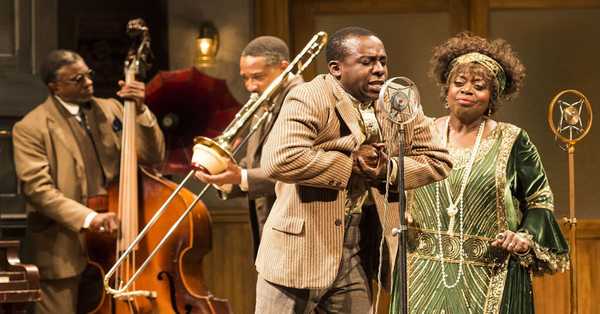Chadwick Boseman is breathtaking in his final film, delivering scene after scene of heartbreaking intensity. There’s no way he isn’t winning an Oscar for this.
The discussions stream effectively in Ma Rainey's Black Bottom, similar to water along a mid year stream. In light of the August Wilson play of a similar name and coordinated by George C Wolfe, the breaking 94-minute film unfurls across a solitary boiling day in 1920s Chicago. It very well might be restricted in scale, yet the extent of its thoughts is magnificent.
Four artists merge at an account studio one evening. They anticipate their chief, Ma Rainey, an amazing artist referred to in specific circles as the Mother of Blues. It's a title befitting a sovereign, and Viola Davis unquestionably plays Ma Rainey like a type of tyrant.
She walks in with a youthful lesbian sweetheart and a faltering nephew, late and unnerving. Mama Rainey orders the room — each room — the second she enters it. You get the feeling that even the spigots in her latrine curtsey when she drops by.
At the point when she needs a Coke, she has somebody run out and get her two or three super cold jugs — she won't sing a solitary note before she's had her rewards. At the point when her director recommends that they attempt another adaptation of one of her exemplary melodies — to change it into something individuals could move to — she closes him down with a look. Afterward, when the white man accountable for the studio endeavors to cheat her out of cash that she is owed, she conveys a danger so cooling that his knees go frail.
Through every one of these three scenes, Ma Rainey's Black Bottom uncovers what it's the issue here. It's about Black individuals, actually rising up out of the shadow of their new past, figuring out how to carry on with good lives. It's about the intensity of workmanship, and the significance of maintaining one's imaginative trustworthiness. Furthermore, it is additionally about the abuse of a whole network, and the framework that sets them in the mood for only implosion.
With simply a small bunch of characters and a solitary setting, Wilson's play caught the broadness of the Black insight. The film comes dreadfully close.
Readings of it will surely be influenced by what has occurred, all things considered. Chadwick Boseman, the man behind the film's most glorious execution, kicked the bucket when it was in after creation. He's unfortunate as the hot-headed trumpeter Levee — an appearance of all the Black men who hope against hope, regardless of their pasts, however are continually halted abruptly by a slanted framework.
